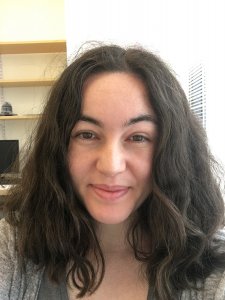Presented By: The Center for the Study of Complex Systems
Optimal sensors in random environments
Sarah Marzen, Massachusetts Institute of Technology, Physics of Living Systems

note location change to 411 West Hall
Abstract: The efficient coding hypothesis has revolutionized theoretical neuroscience. I would argue that its next-generation instantiation is best understood using rate-distortion theory. I use rate-distortion theory to inspire a simple model of sensory adaptation. In randomly drawn, fluctuating environments, this model explains the absence of sensory neurogenesis and predicts that biological sensors are poised to just barely confuse ``minimal confounds'' in the environment.
Abstract: The efficient coding hypothesis has revolutionized theoretical neuroscience. I would argue that its next-generation instantiation is best understood using rate-distortion theory. I use rate-distortion theory to inspire a simple model of sensory adaptation. In randomly drawn, fluctuating environments, this model explains the absence of sensory neurogenesis and predicts that biological sensors are poised to just barely confuse ``minimal confounds'' in the environment.